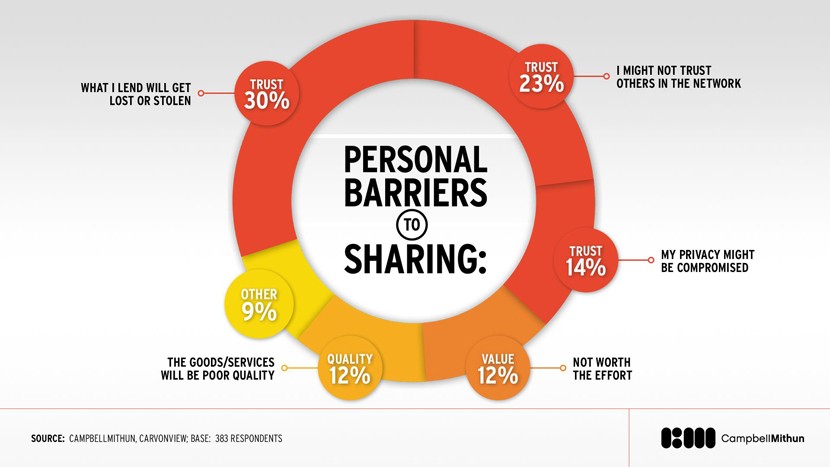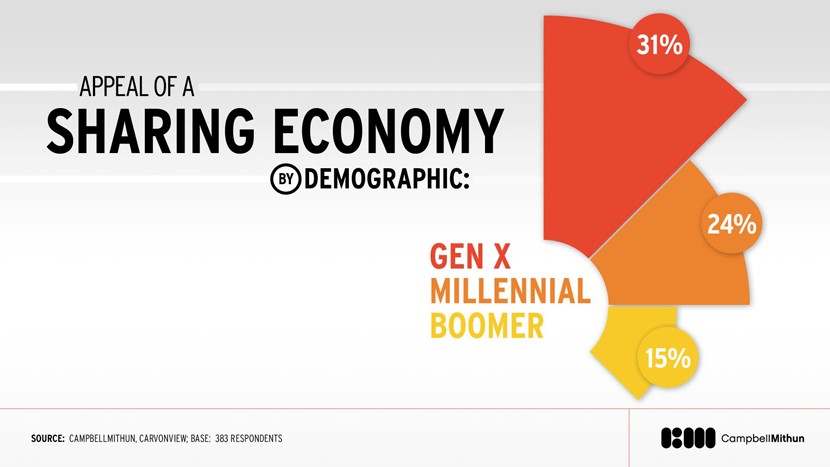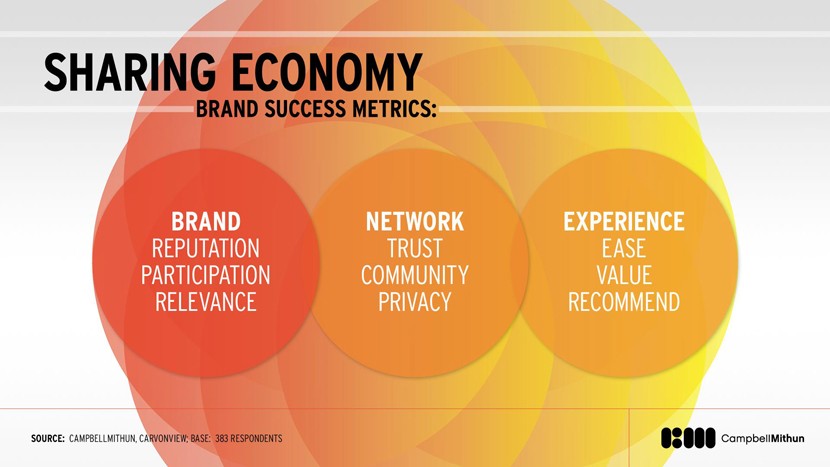In a new study by Leo Burnett as part of their Humans Being series, the “Surprising and unspoken realities” of the sharing economy in America are revealed. The research, which has been collated in a report dubbed “The Sharing Economy: Where We Go From Here,” provides the kind of insights only a global advertising agency as renowned and ubiquitous as Leo Burnett could gain into how people perceive, and participate in, the sharing economy. According to Mick McCabe, chief strategy office at Leo Burnett USA, “ The sharing economy is taking on a life of its own, but it is much more nuanced than we realised.” He says the study “Reveals the psychology and the behaviours of sharers that can help guide brands including why people share and why they do not.”
The research has been collated in a report dubbed “The Sharing Economy: Where We Go From Here.”
The study reveals that people are “Chiefly motivated by practical needs, convenience and the ability to save or make money,” with just “A nominal 35% of people primarily motivated to share by altruism, community and the environment.” It also reveals that 52% of Americans would prefer to own than share, which is perhaps why American have been reluctant to participate in the sharing economy, which is sometimes also referred to as the “Peer-to-peer economy,” the “Collaborative economy or “Collaborative consumption.”

The results show a country conflicted regarding their motives, with personal gain weighing up against the collective good. For example, whilst 53% of people believe helping the less fortunate (charity) is a good reason to share, they are almost as motivated by convenience and practicality (28%) and saving or making money (28%) as they are from connectivity (22%) and a desire to own less (15%).
Founder of "Books on the Underground" Hollie Belton tells her story of creating a book-sharing phenomenon that has spread from London to New York to D.C. and now Chicago
According to the research, which was based on three quantitative surveys totalling 4,000 U.S. adults aged 18-69 fielded in July and September 2014, what's holding people back from participating in the sharing economy is primarily risk (47%) and the joys of ownership (43%). McCabe says this is because “Consumers look at sharing activities and brands separately rather than as of part of a unified 'sharing economy.” He adds that “You could argue that it doesn't even exist. Brands trying to lump together sharing behaviour and market to this phenomenon will get it wrong.”

The real problem with the sharing economy, however, seems to stem from the fact its most outspoken brands are not yet known by most Americans. Only 1 in 20 have used services such as Airbnb and Uber, and only 1 third of the people surveyed had even heard of Airbnb. Indeed, 41% admitted that the sharing economy played “No role in their life during the past year.” Still, the sharing economy is estimated at around $110 billion, and Leo Burnett has found that 70% of those surveyed believe they will join the sharing economy in at least a small way within the next year, with urban millennials leading the way by adopting cutting edge sharing brands like TaskRabbit.
The real problem with the sharing economy, however, seems to stem from the fact its most outspoken brands are not yet known by most Americans
McCabe says that “Sharing represents a new chapter of American entrepreneurship,” which means “Traditional companies need to acknowledge this new engine of disruption and determine what it means for them in their categories.” He also adds that “Most people are unwitting participants in the sharing economy. They don't see themselves as part it just yet,” and feels like we've “Just scratched the surface.”

Of course, if you wish to dig a little deeper into the research, you can read the full research report online via the Humans Being website.






